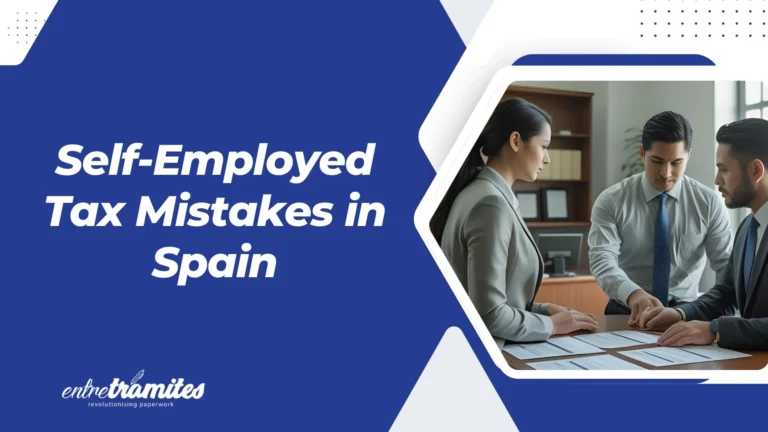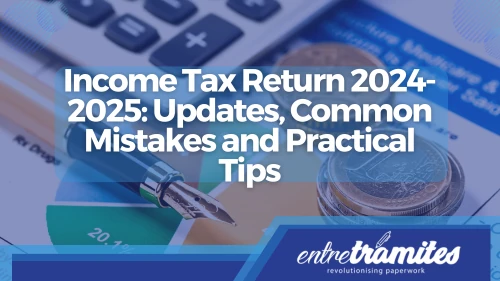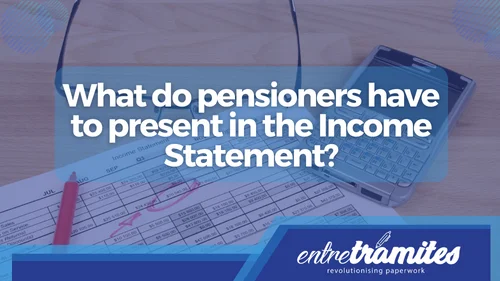Avoid penalties and maximise your tax return by steering clear of these self-employed tax mistakes
Being self-employed in Spain comes with fiscal obligations—one of the most important being the proper filing of your income tax return (Declaración de la Renta). However, due to the complexity of the process and the amount of data involved, it’s easy to make self-employed tax mistakes that could lead to penalties or financial losses.
According to recent data from the Spanish Tax Agency, freelancers are among the groups most likely to make mistakes on their annual tax return. Here are the seven most common self-employed tax mistakes to avoid during the 2024–2025 tax campaign.
1. Leaving the tax return to the last minute
One of the most frequent self-employed tax mistakes is waiting until the last moment to file. Poor planning increases the risk of errors and may lead to late filing.
Important: The 2024 tax season in Spain starts on April 2, 2025 and ends on June 30, 2025. Start early, gather all required documents and consider consulting a tax advisor to avoid setbacks.
2. Incorrectly filling out required tax forms
Freelancers in Spain must submit specific tax forms such as:
- Form 130: for personal income tax instalments
- Form 303: for VAT self-assessment
- Form 390: for the annual VAT summary
Mistakes or omissions in these forms are among the most common self-employed tax mistakes. Double-check all data, make sure income and expenses match your records, and sign electronically where required.
3. Missing out on deductions and tax reliefs
There are several deductions available for self-employed workers in Spain, including:
- Utility costs (electricity, internet, water) when working from home
- Maternity or paternity deductions
- Deductions for investing in new businesses
Failing to apply these deductions is a costly self-employed tax mistake. Be sure to claim all eligible expenses and keep proper documentation.
4. Claiming non-deductible or personal expenses
Not all expenses qualify as deductible. A frequent mistake is claiming personal expenses—holidays, non-business purchases or entertainment—as business costs.
The Tax Agency may reject these claims in case of an audit, possibly resulting in fines. Always ensure your expenses are directly related to your business activity and properly documented. If in doubt, check this deductible expenses guide (add internal link).
5. Entering incorrect bank account details for refunds
If you’re due a refund, make sure to correctly enter your IBAN in the appropriate section of the tax return.
A simple mistake here can delay your refund by months. Also ensure the account is active and in your name.
6. Accounting mistakes in your record books
Poor bookkeeping often leads to self-employed tax mistakes. You must keep your income, expenses, investment assets and cash movement registers up to date.
Many freelancers use digital tools like Spain’s SII (Immediate Supply of Information) to submit real-time data and reduce human errors.
7. Filing or paying taxes late
Missing the June 30, 2025 deadline—or failing to pay owed taxes—can result in penalties that increase over time.
Tip: If you can’t pay your full tax bill immediately, apply for a payment plan through the Tax Agency’s online platform to avoid larger surcharges.
Frequently Asked Questions
What if I find an error after submitting my tax return?
You can file an amended return or request a correction through the Tax Agency’s website. The sooner you act, the better.
Can I deduct car expenses as a freelancer?
Only if the car is used solely for business purposes. Partial use for personal needs may limit the deductible amount.
What if I forget to declare some income?
The Tax Agency may detect it via data checks and request a supplementary return. This may include penalties or interest.
Filing taxes as a freelancer in Spain demands accuracy and attention to detail. Avoiding these self-employed tax mistakes can help you stay compliant and save time, money and stress.
At Entre Trámites, we help you meet your tax obligations simply and stress-free. We offer specialized services in tax returns, tax advice, and accounting for both freelancers and individuals. You can also contact us directly through this contact Form for us to call you, or if you prefer, you can schedule a free consultation or write to us on WhatsApp. We’re here to make the process easier for you!





